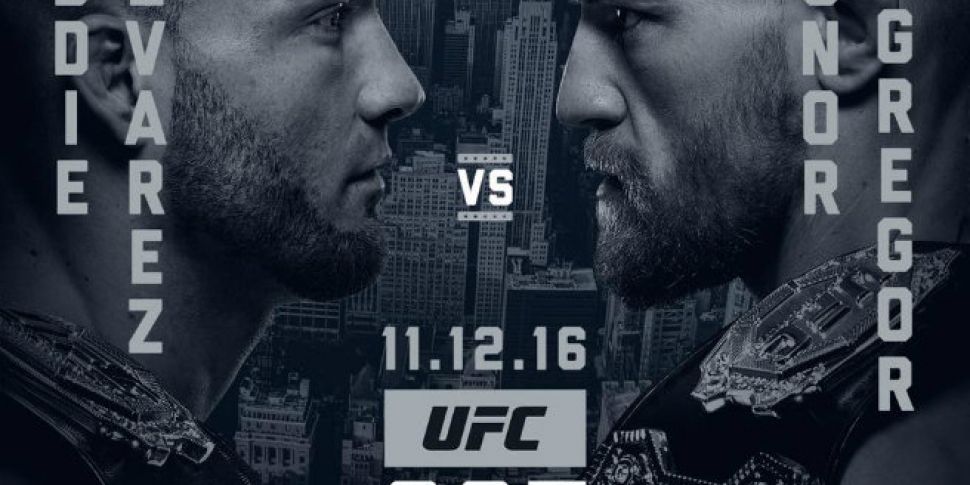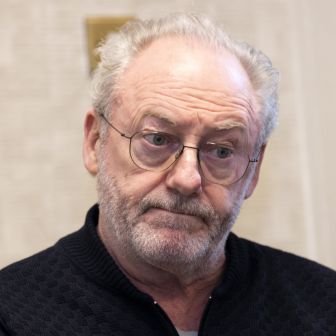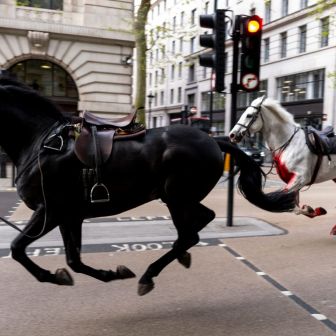The path to the UFC staging its first event in New York city was effectively cleared when the 70-year-old Speaker of the New York Assembly, Sheldon Silver was cuffed after surrendering himself at the FBI headquarters in lower Manhattan in January 2015.
The Democrat faced corruption charges - he was later sentenced to 12 years in prison. Until that point the representative, who The New York Times described as "one of the state's most powerful and feared politicians," had been a roadblock in the way of the UFC holding a fight night in Madison Square Garden.
No rules
Legislation to allow the sport had first been introduced in New York in 1996. At that time the phrase Mixed Martial Arts was yet to be coined - fans called it 'No Holds Barred' or NHB.
[Contains violent content]
In the 1990's the UFC was a very different operation. Semaphore Entertainment Group (SEG) was running the sport, it was marketed as a freak show and lacked basic rules such as bans on headbutts, fishhooks, and kicking opponents on the mat in the head. It didn't even have weight classes or rounds.
SEG began tentatively working on securing permission to hold events in the state in the mid-90's. It hired top-lobbyists and worked with representatives to draft legislation.
It also made an agreement to prove itself to the state authorities by holding regional events before moving into New York City. SEG's ambition was to hold its biggest-ever show in Madison Square Garden.
However, these plans were soon derailed by two main factors. While the UFC had agreed to this 'soft-launch' approach - the legal provisions allowing the sport also opened the doors to its competitors. Extreme Fighting, another MMA (or GHB) promoter announced its immediate plans to come to Manhattan. This spooked the politicians who had been involved in the feeling-out process with the UFC - an orgainsation which had been holding events for less than three years at this point.
As this happened, influential local voices joined a fresh wave of nation moral-outrage as the UFC staged chaotic and violent shows across the country.

"I happen to be a boxing fan, have been all my life. And I know there are issues regarding boxing, and they are serious ones. But this is way beyond boxing. This is people brutalising each other," New York City mayor Rudolph Giuliani said at the time.
He became a vocal opponent of the sport coming to New York, and soon some of the politicians who had originally welcomed the sport to New York distanced themselves from the organisation and started calling for an out-right ban.

PA
US Senator John McCain led a national campaign to ban the sport. He was the first to popularise the comparison between the UFC and "human cockfighting." Mr McCain's crusade resulted in 36 states banning MMA. The young UFC - which proudly claimed to have "no rules" - duly never made it to Manhattan.
Clean out
Facing bans in many markets and the threat of bankruptcy the promotion was sold to the Fertitta brothers, Frank III and Lorenzo (heirs to a Las Vegas casino empire) in 2001 for $2m.
Once ownership was transferred to the Fertitta brothers basic rule changes were made like the introduction of weight classes and the banning of a number of the sport's more brutal moves (including to aforementioned head butts, fish-hooks, and kicks to the head on the ground).

Lorenzo Fertitta and Ronda Rousey / PA
After an initial struggle to bring the sport out of the wilderness (Lorenzo Fertitta said at the time that it would have been easier to sell pornography to TV stations than MMA) the UFC created 'The Ultimate Fighter,' a hit reality TV show which helped the brand to achieve mainstream success.
From there the organisation was transformed into the international brand which recently sold for $4.2bn - but during this journey New York held out as the one state which would not allow professional MMA events.
Lobby
The cause of this stalemate transformed over time from a dispute over public decency and fighter safety, to a battle between the UFC's owners and a powerful union.
In 2011, UFC president Dana White told a press conference that the true reason why the UFC was being kept out of the state was a row between the Culinary Workers Union in Nevada and the Fertitta brothers.
The Fertittas' Las Vegas casino empire, Station Casinos, does not recognise the union which represents workers in the hotel, food service and gaming industries. It alleges that its unsuccessful attempts to unionise some 14,000 workers in the brother's 18 casinos resulted in its parent union, Unite Here, using its political clout in the Empire State to block the Fertittas' attempts to bring the UFC to New York.
Sheldon Silver was politically aligned with the Union. Year after year he exercised his power to block a vote on the legalisation relating to MMA taking place.

Sheldon Silver arrives at a New York court / PA
He never explained his position - but the Wall St Journal reported in 2013 that the while the standoff between the UFC and Mr Silver continued it was understood that striking a deal with the union in Vegas would clear the way for safe passage through New York's legislature.
Signing off
After seven years of failed attempts to gain access to the New York market it was only after the removal of Mr Silver from his position following his unrelated corruption conviction that MMA has been legalised - allowing the UFC to bring one of its highest-profile cards of 2016 to Manhattan's Madison Square garden.
Ironically, the event also comes after the Fertittas have been removed from the picture, as they sold the company to William Morris Endeavor-International Marketing Group (WME IMG) in July of this year.
With McGregor squareing up to Eddie Alvarez for the 155 pound belt cage-side seats are retailing for $1,506, and McGregor's attraction ensures that the event is likely to threaten to break the company's PPV records.
"It's the media capital of the world, so it's very important," UFC President Dana White said ahead of the event, before adding that a presence in the Empire State creates "a lot more awareness (of the UFC and its appeal) for agencies and brands."
Riding high on the wave of crossover mainstream success with breakout stars like Conor McGregor and former US Olympian Ronda Rousey, the MSG show offers the UFC a perfect showcase for the new owners to flaunt their wares.









